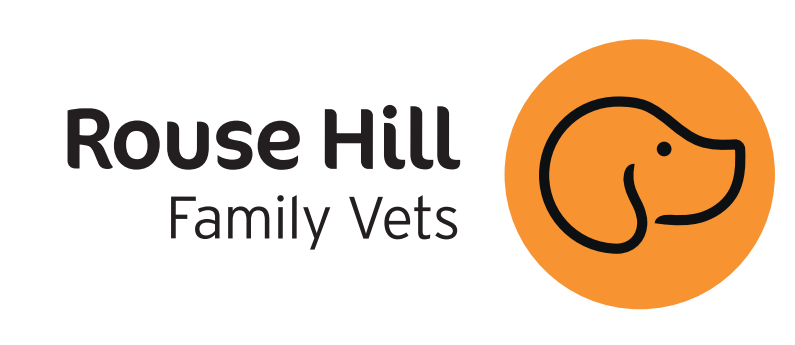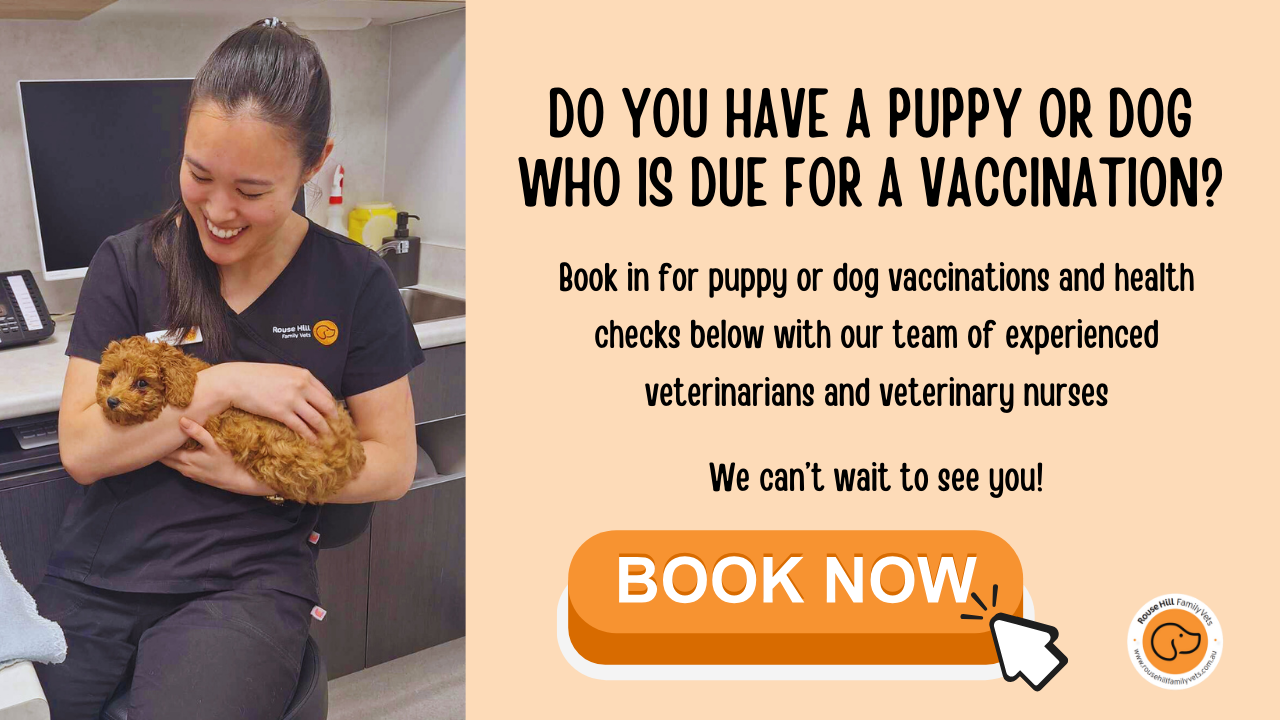
Canine Parvovirus, commonly known as “parvo”, is a life threatening infection that predominantly occurs in puppies between 6 and 20 weeks of age. In some areas of Sydney it is the leading cause of severe illness and death in puppies and adolescent dogs.
What is Canine Parvovirus?
Canine parvovirus is a highly contagious disease that attacks the body’s rapidly dividing cells, most commonly the gastrointestinal tract and the white blood cells. In puppies, the virus can also damage the heart muscle.
All dogs are susceptible to canine parvovirus, however some dogs are at greater risk than others. This includes puppies between 6 and 20 weeks or age, unvaccinated or incompletely vaccinated dogs and the following dog breeds:
- Rottweilers
- Doberman pinschers
- Bull terrier breeds
- German shepherds
- English springer spaniels
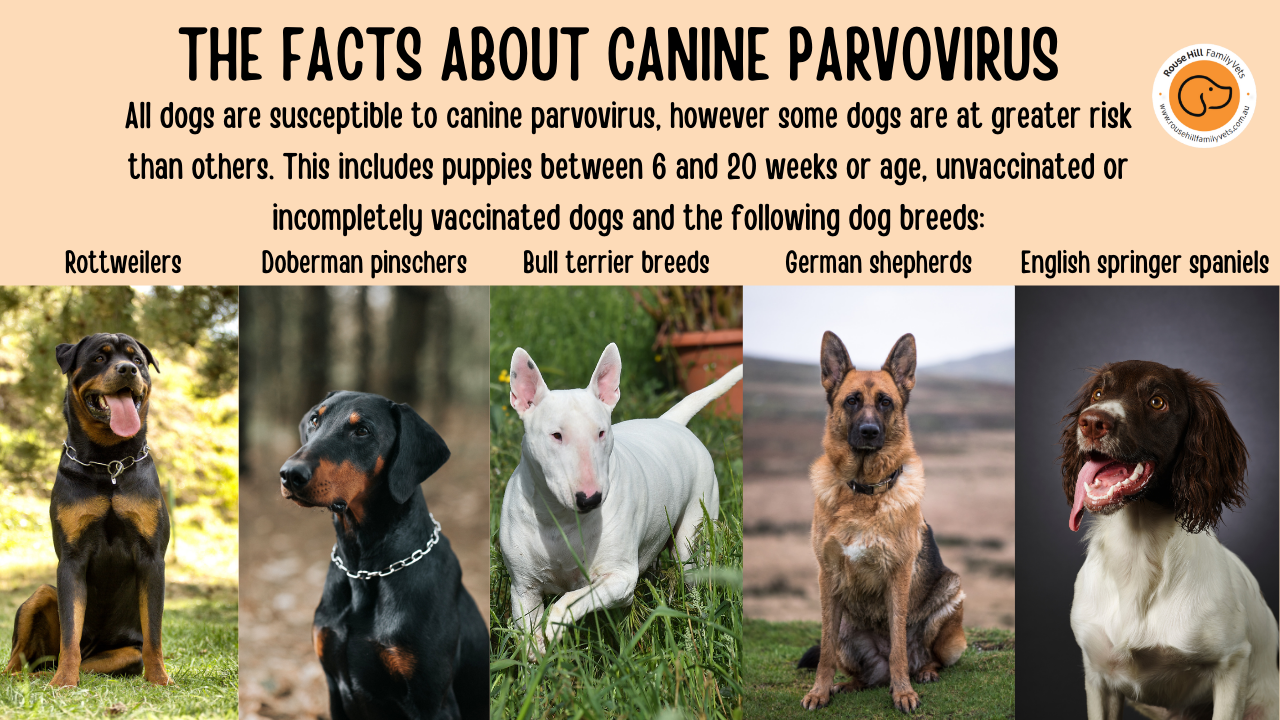
Clinical Signs of Parvovirus
The signs of parvovirus infection vary from dog to dog, depending on the severity of the infection. These most common signs are:
- Lethargy
- Loss of appetite
- Vomiting
- Severe, often bloody, diarrhoea
- Abdominal pain and bloating
- Fever or low body temperature (hypothermia)
Puppies are at most risk of being affected by parvovirus. If your puppy develops any of these symptoms it is important to seek URGENT veterinary care.
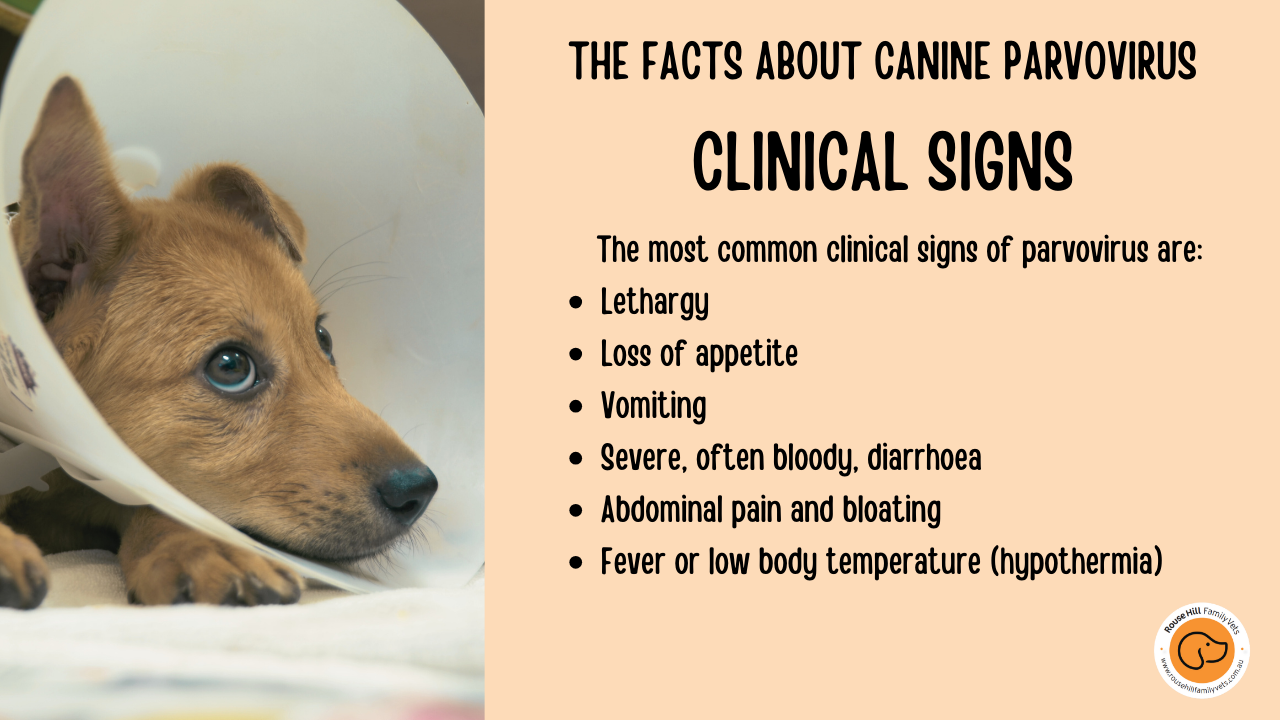
How is Canine Parvovirus spread?
Parvo is a very contagious disease spread through contact with an infected animal and especially via their infected faeces. The virus can survive in the environment for long periods and can be easily spread on shoes, clothing, hair or feet.
The virus is resistant to heat, cold, humidity and drying and can survive in the environment for long periods. Even tract amounts of infected faeces can contact the virus and infect other dogs. This makes proper disinfection practices critical.
How is Canine Parvovirus diagnosed and treated?
We may suspect parvovirus infection based on the signs your puppy or dog is showing, your puppy’s history and other factors. Faecal testing can confirm the diagnosis.
Treatment involves hospitalisation and intensive supportive care to correct dehydration and physiological imbalances caused by vomiting and diarrhoea, control nausea and pain, keeping them warm, preventing other infections from happening and providing nutritional support. Severe cases will require immediate, intensive treatment and 24/7 monitoring which often involves several days of hospitalisation. This can all be very expensive and your dog may die despite treatment. Fortunately, with treatment there is an 80% survival rate.
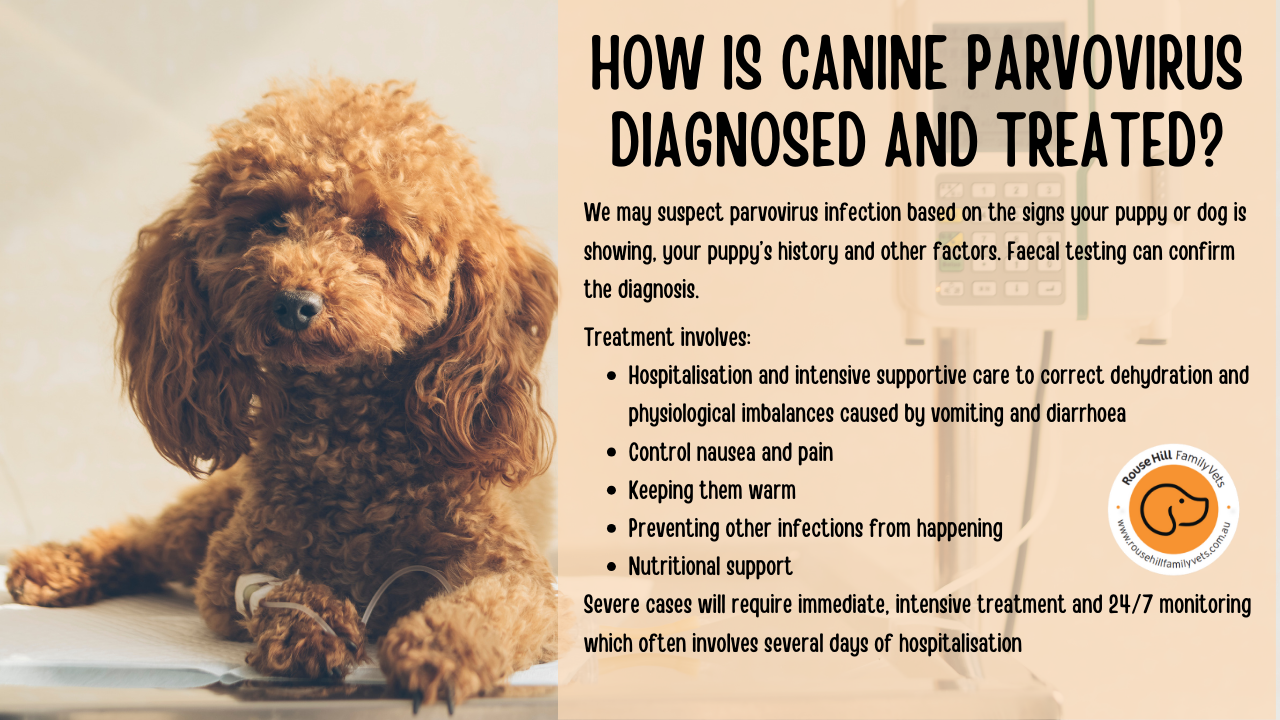
How can I protect my puppy against Parvovirus?
Vaccinations are the most effective way of protecting your dog. Ensure your puppy receives each of their 3 puppy vaccinations on time with their final vaccination being at 16 weeks or older. In addition to vaccinations we also recommend:
- Avoiding contact with other dogs who are not fully vaccinated and not well
- Choose establishments and training programs that require up-to-date vaccinations, health examinations, good hygiene and isolation of sick puppies and dogs – Our puppy preschool is a safe space to socialise your puppy. Book here
- Keep your dog away from other dog’s faeces
- Keep your dog away from other dogs when sick, including other dogs within your home
- Avoid contact with known infected dogs and their premises
- Routinely collect and properly dispose of your dog’s faeces
- If you’ve been in contact with dogs with or exposed to parvovirus, avoid handling other dogs or wash your hands and change your clothes before doing so.
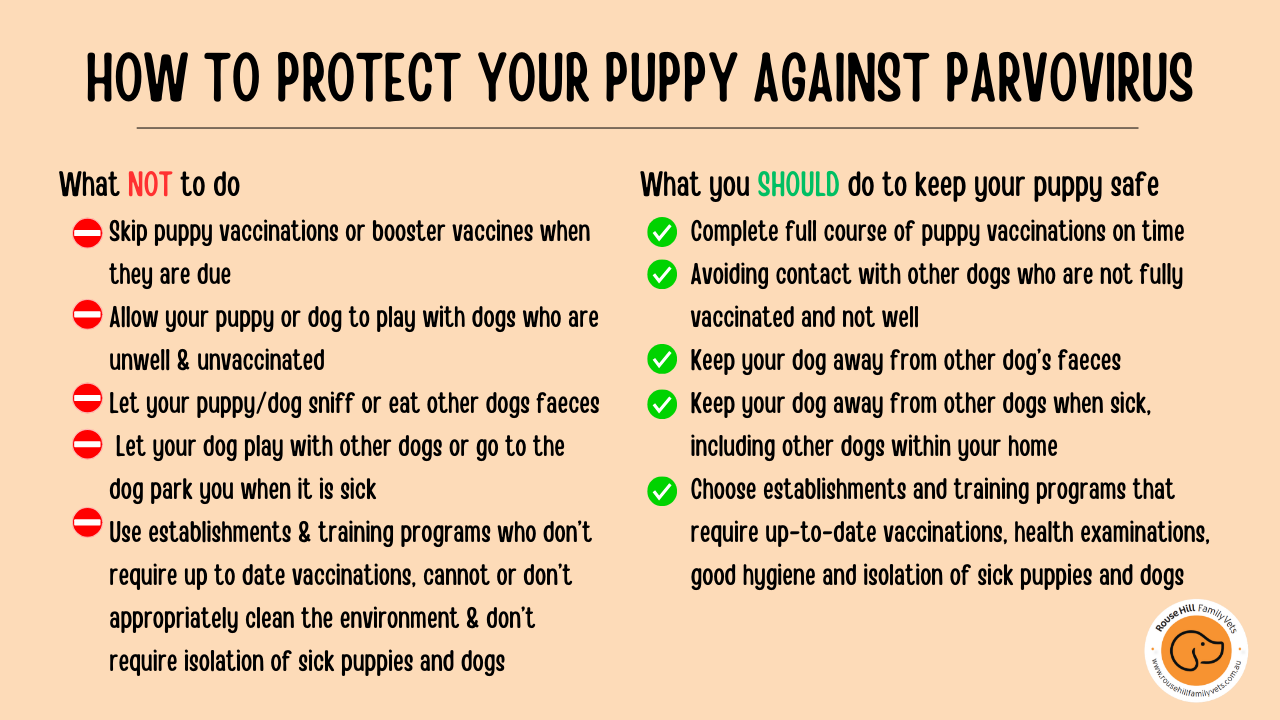
We offer puppy and dog vaccinations Monday to Saturday in our purpose built veterinary hospital in Rouse Hill, Sydney. All of our experienced veterinarians and veterinary nurses are fear free certified professionals who ensure we care for not only the physical wellbeing of your dog but also their emotional wellbeing.
For more information regarding the vaccines we offer and costing CLICK HERE.
